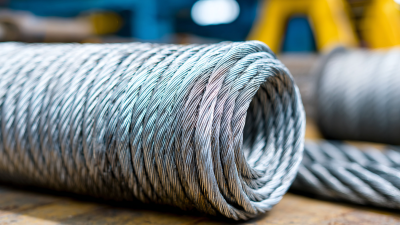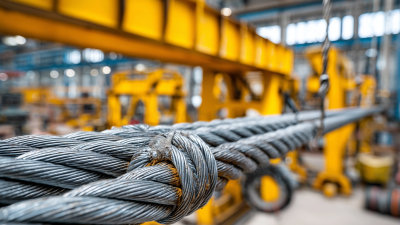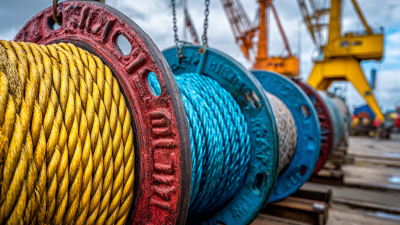
Leave Your Message

When it comes to ensuring the safety and efficiency of your elevator systems, selecting the appropriate Elevator Steel Wire Rope is paramount. This guide aims to walk you through the essential considerations and factors to keep in mind when making your choice. The right wire rope not only guarantees smooth operation but also impacts the longevity and reliability of your elevators. With various types and specifications available, it can be overwhelming to determine which Elevator Steel Wire Rope best suits your unique requirements. In this comprehensive overview, we will cover critical aspects such as load capacity, environmental conditions, and maintenance practices, providing you with actionable insights to make an informed decision. Whether you are a seasoned professional or a newcomer to elevator systems, this guide will equip you with the knowledge necessary to choose the ideal wire rope for your needs.
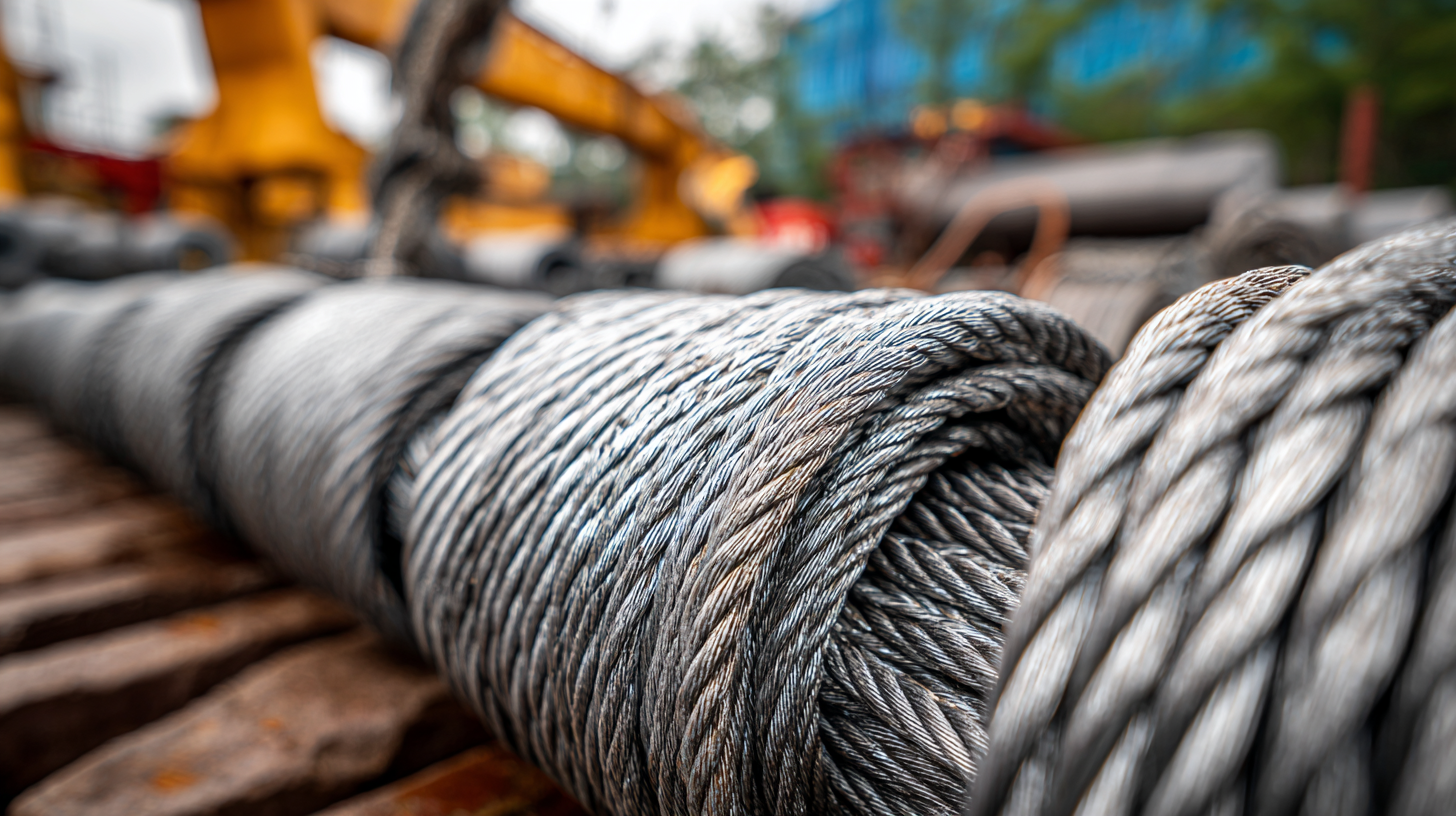
When selecting the right elevator steel wire rope, it is essential to understand the various types available in the market. Elevators primarily utilize wire ropes made from high-strength steel, which play a critical role in safety and performance. According to industry reports, the most commonly used types include rotation-resistant ropes, which are specifically designed to minimize the risk of spin and enhance durability, and non-rotation-resistant ropes, which are more traditional but require careful handling to avoid over-twisting. The choice of wire rope significantly affects the operational efficiency and lifespan of the elevator system.
Additionally, advancements in non-destructive testing technologies, such as magnetic sensors, are being explored to assess the wear and tear of these wire ropes over time. Research indicates that continuous monitoring can detect early signs of fatigue, ensuring the safety of both passengers and maintenance personnel. The integration of such technologies not only increases safety margins but also reduces downtime and maintenance costs associated with elevator operations. As the industry evolves, innovations in steel rope manufacturing and testing methods will likely pave the way for even safer and more efficient vertical transport systems.
When selecting the right elevator steel wire rope, several key factors should be taken into consideration to ensure safety and performance. The material and construction of the wire rope are paramount; high-quality steel with a suitable strand construction provides the necessary strength and flexibility. According to industry data, the right wire rope can significantly enhance the operational efficiency of traction systems, especially in high-rise buildings where the load-bearing capacity is crucial. For instance, wire ropes designed for deep wells require higher tensile strength to manage both the weight of the elevator and the additional stress during operation.
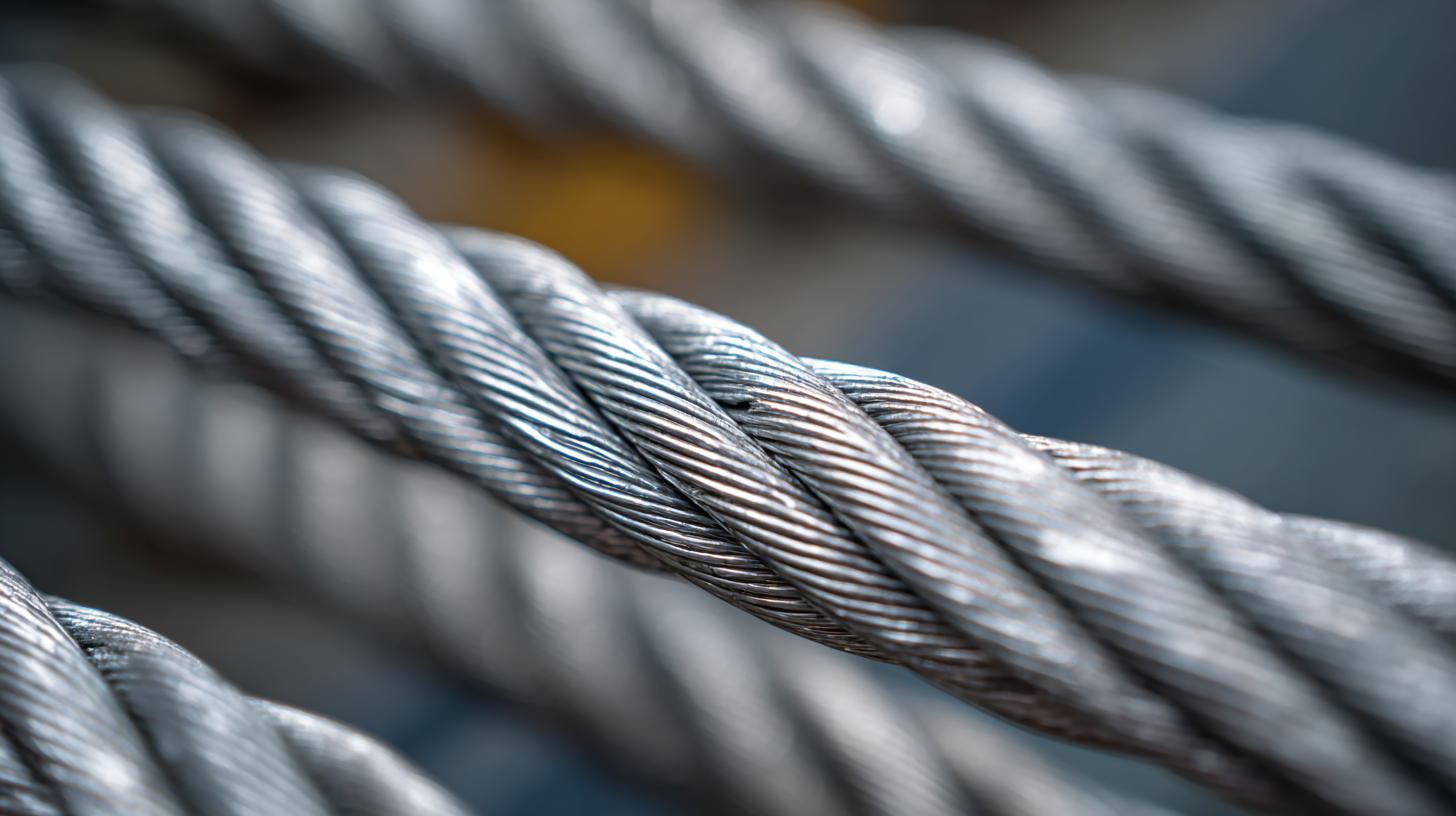
Another critical factor in wire rope selection is the dynamic behavior under load. Recent studies highlight that modern elevators incorporate advanced mechanisms to prevent free-fall scenarios, thereby prioritizing passenger safety. The dynamic analysis of rope-guided traction systems emphasizes the importance of terminal tension, particularly when dealing with compensating ropes that mitigate the effects of heavy loads in deep elevators. Ensuring that your chosen wire rope can withstand these conditions is essential for maintaining continuous and safe elevator service, thus safeguarding users from potential hazards associated with cable failures.
When it comes to selecting the right elevator steel wire rope, understanding the performance and durability differences among various options is essential for ensuring safety and efficiency. According to the International Organization for Standardization (ISO), the minimum breaking strength of steel wire ropes is a critical factor. For instance, ISO 4309 specifies that elevator wire ropes should exhibit a minimum breaking strength of 150 kN per millimeter diameter. This ensures that the rope can withstand the operational stresses encountered during both normal runs and emergency situations.
Moreover, the fatigue resistance of steel wire ropes can vary significantly based on the material and construction. A study by the Rope Technical Committee indicates that ropes made with high carbon steel can outperform standard ropes in terms of fatigue life, with up to 30% longer endurance in dynamic loading conditions. Additionally, the use of advanced coatings can enhance corrosion resistance, thus prolonging the longevity of the rope even in harsh environments. Selecting ropes that meet these performance benchmarks not only aids in compliance with safety regulations but also reduces downtime and maintenance costs, making them a prudent investment for elevator systems.
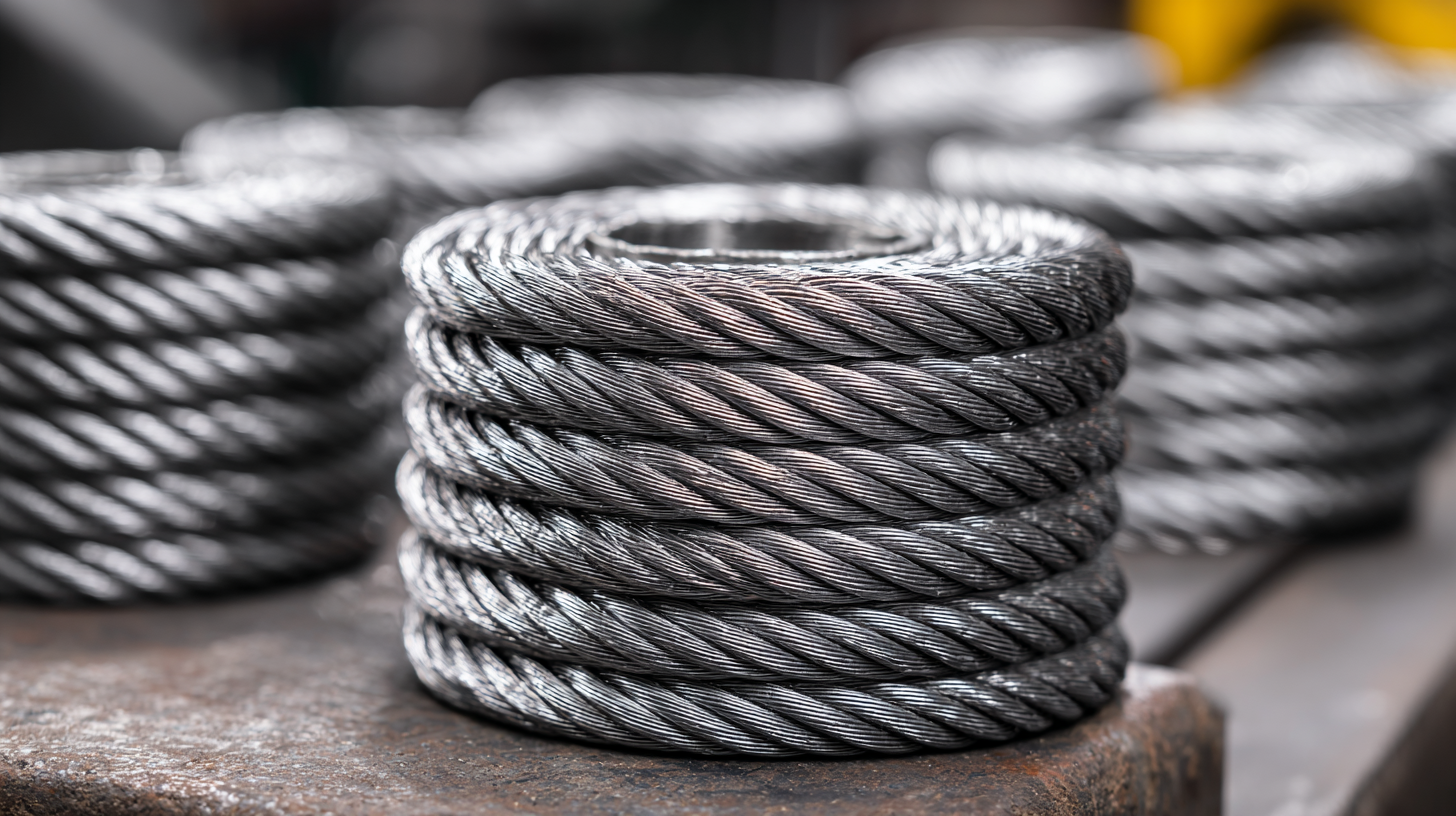
When selecting the appropriate elevator steel wire rope, understanding safety standards and regulations is paramount. Compliance with industry guidelines, such as those set by the American Society of Mechanical Engineers (ASME) and the European Committee for Standardization (CEN), ensures that the wire ropes not only meet performance requirements but also enhance the overall safety of elevator systems. These standards dictate specifications for material strength, endurance, and operational limits, which are crucial for preventing failures during use.
Moreover, regular inspection and maintenance protocols are outlined in these regulations to ensure longevity and reliability of the wire ropes. Adhering to these practices can significantly reduce the risk of accidents caused by equipment failure. It's also essential to consider the environmental factors that may affect the performance of the ropes, including corrosion resistance and temperature fluctuations, as specified in various safety standards. By thoroughly evaluating these regulations, elevator operators can make informed decisions that prioritize both safety and functionality in their wire rope selection.
When it comes to elevator safety, maintaining the steel wire rope is crucial in preventing accidents and ensuring the reliability of the elevator system. Regular inspections of the wire rope can help identify any signs of wear, corrosion, or fraying, which could lead to serious malfunctions. Furthermore, following manufacturer guidelines for maintenance schedules is essential. Proper lubrication and the right tension adjustments can significantly extend the lifespan of the wire rope.
Given the rising incidents of elevator accidents in cities like Mumbai, attention to maintenance cannot be overstated. The mechanisms in modern elevators are designed to provide safety redundancies, such as braking systems that activate in the event of cable failure. However, these systems can only function effectively if the wire ropes are in optimal condition. Thus, investing time and resources into regular maintenance, including checking for proper alignment and wear patterns, not only enhances safety but also ensures peace of mind for users.
| Rope Type | Diameter (mm) | Maximum Load (kg) | Safety Factor | Maintenance Tips |
|---|---|---|---|---|
| 6 x 19 | 10 | 1500 | 7:1 | Regular lubrication and visual inspections. |
| 8 x 19 | 12 | 2000 | 7:1 | Inspect for wear and corrosion frequently. |
| 6 x 37 | 14 | 2500 | 8:1 | Maintain proper tension and alignment. |
| 8 x 36 | 16 | 3000 | 8:1 | Clean and lubricate ropes regularly. |

